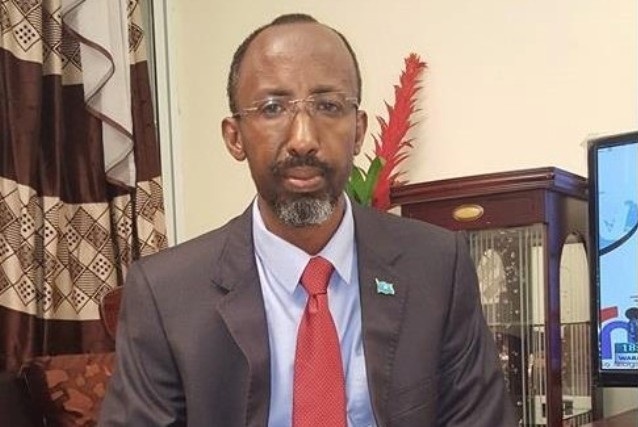MOGADISHU, Somalia — The Ministry of Education, Culture, and Higher Education of the Federal Republic of Somalia is making significant strides in improving the country’s education system, focusing on enhancing curriculum quality and teacher qualifications, under the leadership of Minister Farah Sheikh Abdulkadir.
Since assuming office, Abdulkadir has initiated various plans to elevate the standard of education in Somalia, aiming for recognition on a global scale. The ministry has revised the national curriculum and is actively ensuring the quality of educators in schools across the country.
The new change that aims to bridge the educational gaps that have hindered the country’s progress in recent years has been warmly welcomed by the Somali people. Notably, this initiative has extended the duration of university studies from three to four years to five years, reflecting a significant commitment to enhancing the depth and quality of education at the tertiary level.
In addition, the ministry has stated that it has a goal in these efforts to improve education so that the country obtains educational qualifications that are competitive with the education system of neighboring and developed countries.
This ambitious plan has now come to fruition, overcoming numerous challenges faced by the ministry, including a comprehensive review of the number of educational institutions in the country and their quality levels, which have been evaluated along with their educational activities.
The Ministry of Education in Somalia is prioritizing the provision of high-quality education and working qualifications for students to compete globally, rather than focusing on the financial resources of educational institutions.
In the past year, the ministry has hired approximately 3,000 teachers who achieved excellent results in their exams, out of 8,000 participants. These teachers, all currently employed by the government, are working in government-run schools and are responsible for educating over 100,000 Somali children.
Children from 31 districts across Galmudug, Southwest, HirShabelle and Jubaland states as well as Benadir region are the first to benefit from this initiative, which aims to spread education and build a brighter future for Somali children.
Despite challenges, the ministry has prioritized providing high-quality education. It has hired over 3,000 teachers, who have successfully passed exams, to educate over 100,000 Somali children in 31 districts.
The Ministry of Education has reaffirmed its commitment to the ESSP 2022-2026 education sector plan, which emphasizes equal and high-quality education across the country without any fees.
On Saturday, June 22, the unified national exam for high schools commenced in the capital and across the Federal States of the country. Over 37,000 students participated in the exam, including those in the areas recently liberated from Al-Shabaab and in the northern towns of Las Anod and Buhodle, which were previously under the administration of the breakaway region of Somaliland for many years.
In a significant move, the government has initiated the high school certificate examination in cities and districts including LasAnod, Buhodle, Eldher Afmadow, and El-Wak, signaling a marked improvement in the country’s education service.
The Ministry of Education has highlighted that the quality of this year’s exam surpasses those conducted over the past decade, offering students the opportunity to pursue higher education in various universities worldwide.
The efforts made mark a turning point for Somalia’s education system, which has struggled for the past 30 years, restoring confidence among students and parents and providing a brighter future for the nation’s children. However, these visible initiatives are now healing the longstanding wounds within the education community and parents, who are now optimistic about their children’s academic prospects.





